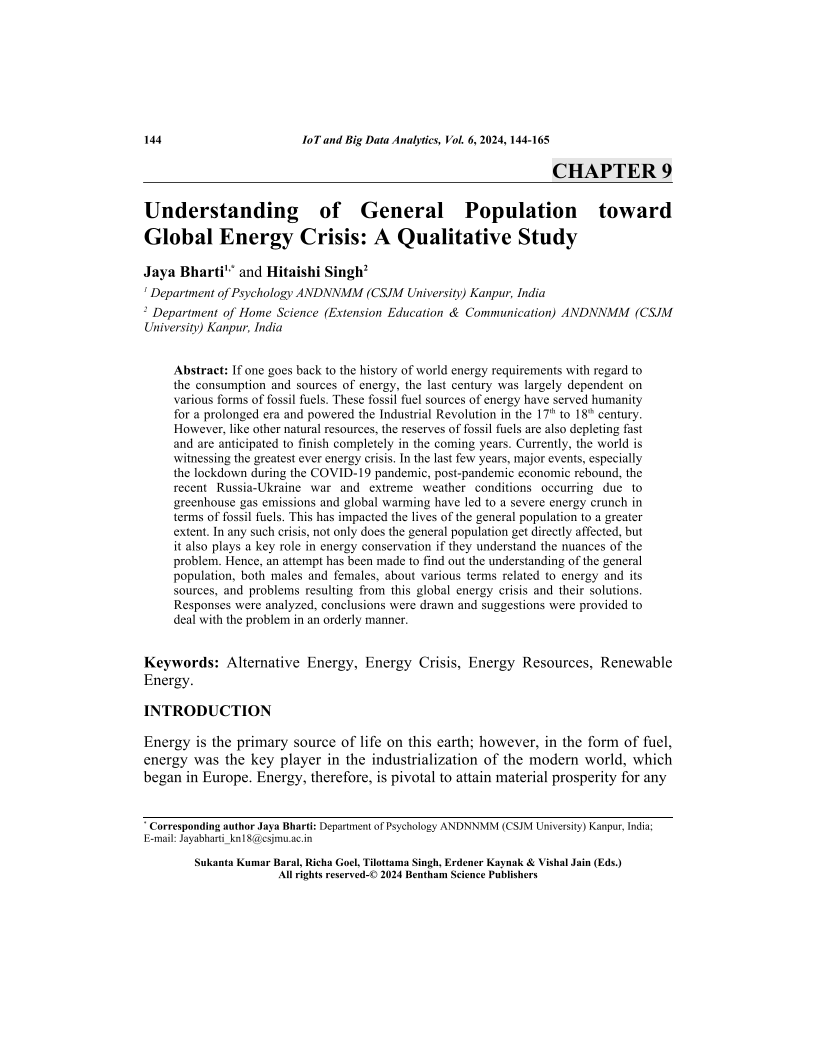Understanding of General Population toward Global Energy Crisis: A Qualitative Study

- Authors: Jaya Bharti1, Hitaishi Singh2
-
View Affiliations Hide Affiliations1 Department of Psychology ANDNNMM (CSJM University) Kanpur, India 2 Department of Home Science (Extension Education & Communication) ANDNNMM (CSJM University) Kanpur, India
- Source: Changing Competitive Business Dynamics Through Sustainable Big Data Analysis , pp 144-165
- Publication Date: July 2024
- Language: English
Understanding of General Population toward Global Energy Crisis: A Qualitative Study, Page 1 of 1
< Previous page | Next page > /docserver/preview/fulltext/9789815256659/chapter-9-1.gif
If one goes back to the history of world energy requirements with regard to the consumption and sources of energy, the last century was largely dependent on various forms of fossil fuels. These fossil fuel sources of energy have served humanity for a prolonged era and powered the Industrial Revolution in the 17th to 18th century. However, like other natural resources, the reserves of fossil fuels are also depleting fast and are anticipated to finish completely in the coming years. Currently, the world is witnessing the greatest ever energy crisis. In the last few years, major events, especially the lockdown during the COVID-19 pandemic, post-pandemic economic rebound, the recent Russia-Ukraine war and extreme weather conditions occurring due to greenhouse gas emissions and global warming have led to a severe energy crunch in terms of fossil fuels. This has impacted the lives of the general population to a greater extent. In any such crisis, not only does the general population get directly affected, but it also plays a key role in energy conservation if they understand the nuances of the problem. Hence, an attempt has been made to find out the understanding of the general population, both males and females, about various terms related to energy and its sources, and problems resulting from this global energy crisis and their solutions. Responses were analyzed, conclusions were drawn and suggestions were provided to deal with the problem in an orderly manner.
-
From This Site
/content/books/9789815256659.chapter-9dcterms_subject,pub_keyword-contentType:Journal -contentType:Figure -contentType:Table -contentType:SupplementaryData105

